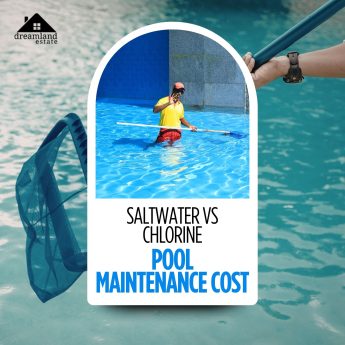Understanding The Cost Of Moving A Mobile Home

Moving a mobile home sounds like a massive headache, right? There’s the stress of packing up your life, figuring out logistics, and then there’s the price tag looming over it all.
You want your home moved safely, but also, you’re not looking to spend a small fortune in the process.
Mobile homes have always been appealing because they’re flexible and often way cheaper than traditional houses. But when it comes time to relocate, finding someone who can do it without blowing up your budget is key.
The Mobile Home Movers. They show up like a superhero, do their job, solve your issues, and leave.
In this guide, we are going to take a look at how they can help to resolve the issues of moving a mobile home.
By the end, you’ll feel way more prepared to find affordable mobile home movers near me without sacrificing peace of mind.
The key highlights:
- What moving a mobile home really costs,
- What makes the price go up (or down),
- How to find movers that won’t wreck your wallet,
- What to watch out for so you don’t get burned by hidden fees or sketchy companies.
What It Really Costs To Move A Mobile Home?
Here’s the thing—there isn’t a one-size-fits-all price. Moving a mobile home depends on a bunch of factors: the size of your home, how far you’re going, and what services you need.
On average, though, most folks pay somewhere between $3,000 and $10,000… sometimes more if it’s a big move.
Here’s a quick breakdown so you have a rough idea:
| Mobile Home Type | Distance | Estimated Cost Range |
| Single-wide | Local (same town/city) | $500 – $4,000 |
| Single-wide | Within a 1-hour radius | $4,500 – $7,500 |
| Single-wide | Full-service (50 miles, permits) | $5,000 – $8,000 |
| Double-wide | Within a 1-hour radius | $8,500 – $14,500 |
| Double-wide | Full-service (50 miles, permits) | $10,000 – $13,000 |
| All types | Nationwide | $3,000 – $16,000+ |
Keep in mind—these are ballpark figures. Your actual cost could be higher or lower depending on the details of your move.
What Are The Key Factors That Influence Your Final Bill?
So what exactly makes the price jump? Here are the big ones:
- Distance: Short moves within the same city are cheaper. Long-distance moves? They add fuel, time, and extra permits. That’s why local moves can be $500-$4,000 while cross-country ones might hit $16K.
- Size of the Home: Single-wides move in one piece. Double-wides? They’ve got to be split into two sections, hauled separately, and reassembled—basically double the work (and double the cost).
- Weight: Heavier homes need bigger trucks, more fuel, sometimes even cranes. That adds up fast.
- Age and Condition: Homes built before 1976 can be trickier since they might not meet modern safety standards. Older homes often need extra reinforcement before hitting the road.
- Route Complications: Low bridges, narrow roads, or tricky turns might require a route survey or pilot cars, which some states mandate for oversized loads.
- Foundation Type: Breaking a home loose from a simple block foundation is easier than removing it from a slab or more permanent base.
Every one of these can nudge that final bill higher than you expect.
What Are Hidden Fees And Extra Charges?
Here’s where people get blindsided. You get a quote, think it’s the final price, then suddenly… surprise fees. Some common ones include:
- Utility disconnection/reconnection: Movers haul the home, but you might need separate pros for plumbing, electric, gas, and HVAC hookups.
- Skirting removal/reinstallation: Those panels around the base of your home? Gotta come off before moving, then back on after. Often costs extra.
- Axle and wheel rental: If your home doesn’t have its original wheels anymore, you might be renting or buying them for the move.
- Site prep: Clearing land or grading the new lot? Usually on you, unless you pay the movers extra.
- Permit fees: Movers often get the permits, but you pay for them. Costs vary by state.
- Hard-to-reach locations: If your home’s in a spot that’s tough for big trucks, expect “difficulty” charges.
Knowing about these ahead of time saves you from sticker shock later.
How to Find Cheap Mobile Home Movers Near Me?
Finding affordable movers isn’t just about the lowest price. It’s about balancing cost with reliability so you’re not paying for mistakes later.
Here’s how to start your search:
- Google it: Try searches like “cheap mobile home movers near me” or “mobile home transport + [your city].”
- Local directories: Both online and old-school print versions often list movers by area.
- Ask mobile home park managers: They see movers come and go all the time and usually know who’s reputable.
- Word of mouth: Friends, family, or neighbors who’ve done it before are gold mines for recommendations.
What To Look For In Affordable Mobile Home Movers Near Me?
Cheap isn’t worth it if the company’s shady. Look for:
- Licensing, bonding, and insurance: No exceptions here. They should be fully legit and able to prove it.
- Experience: Movers who’ve been around the block (literally) know the quirks of these jobs.
- Solid reviews: A few bad reviews are normal, but tons of complaints? Run.
- Clear contracts: No vague promises. Get every detail in writing.
What Are The Questions To Ask Before You Hire?
Before you sign anything, ask:
- What exactly does your quote include?
- Do you handle permits, or is that on me?
- What’s your insurance coverage, and can I see proof?
- How long will the whole thing take?
- What payment methods do you accept?
- Do you guarantee your work?
- How do you handle delays or damage claims?
Good companies will have clear, confident answers.
The Mobile Home Moving Process from Start To Finish
Knowing what to expect helps keep you sane.
Prepping your home:
- Lock windows and doors.
- Remove furniture and anything loose inside.
- Disconnect all utilities.
- Take off skirting, decks, or porches.
- Snap photos for insurance just in case.
What movers do:
- Get permits.
- Bring heavy-duty trucks, trailers, and moving equipment.
- Plan the safest route.
- Haul your home to the new site, then block, level, and anchor it down securely.
Single-Wide vs. Double-Wide Moves
Single-wides? Pretty simple—one piece, one trip.
Double-wides? Different story. They get split into two sections, moved separately, then rejoined at the new spot. Re-sealing the seams, aligning the roof… It’s a bigger job, which is why it costs more.
The Risks Of “Too Cheap” Movers
Everyone wants a deal, but beware of:
- No written contracts
- Huge cash demands upfront
- No insurance or licensing
- Sketchy communication
- Prices are way below everyone else
These are red flags for scams or bad service.
The Importance Of Insurance and Guarantees
Legit movers carry insurance for both your home and the transport itself. Always ask:
- What’s covered?
- For how much?
- What happens if damage occurs?
Get it all in writing. Paying a bit more for a fully insured mover can save you thousands if something goes wrong.
FAQs about Affordable Mobile Home Moving
Technically? Maybe. Realistically? Please don’t. It needs permits, pilot cars, massive trucks, and serious expertise. DIY disasters get expensive fast.
Usually, yes—but always confirm. Some permits (like zoning at the new site) might still be on you.
Often, yes. Homes built before 1976 might not meet modern codes and can require extra work or even upgrades before they’re road-legal.
Read Also:











Leave A Reply